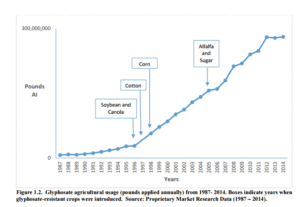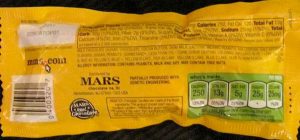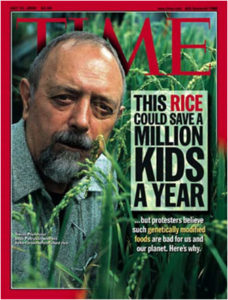The EPA says glyphosate is “not likely” to be carcinogenic
The Environmental Protection Agency (EPA) has done an extensive analysis of research on whether glyphosate (Roundup), the herbicide to which GMO crops are resistant, is carcinogenic.
To put this in context, the amount of glyphosate used in the United States is huge and rising (the scale is hundreds of millions of pounds).

Its report is long and detailed, written in government-speak, and a challenge to understand. Here is its major conclusion (page 141):
For cancer descriptors, the available data and weight-of-evidence clearly do not support the descriptors “carcinogenic to humans”, “likely to be carcinogenic to humans”, or “inadequate information to assess carcinogenic potential”. For the “suggestive evidence of carcinogenic potential” descriptor, considerations could be looked at in isolation; however, following a thorough integrative weight-of-evidence evaluation of the available data, the database would not support this cancer descriptor. The strongest support is for “not likely to be carcinogenic to humans” at doses relevant to human health risk assessment [my emphasis].
But this review is not over yet. Still to be done is work on glyphosate’s immediate toxic effects. The EPA is working with other agencies to:
- Compare the toxicity of glyphosate vs. formulations, as well as compare formulations vs. formulations
- Provide publicly available toxicology data on cancer-related endpoints
- Provide publicly available toxicology data on non-cancer endpoints
- Investigate the mechanisms of how glyphosate and formulations cause toxic effects
Expect more reports like this to come.
Addition: In 2015, the European Food Safety Agency’s peer review of risk assessments of glyphosate concluded that it was “unlikely” to cause cancer in humans.




